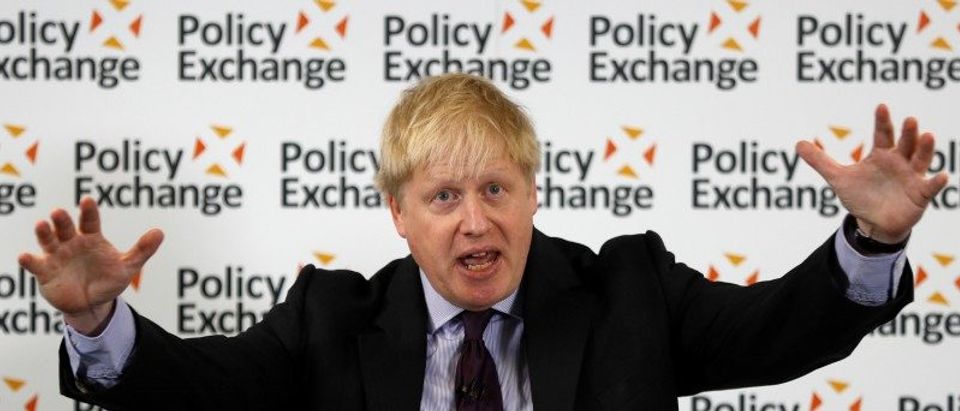When Boris Johnson became British prime minister on July 24, he was greeted with the hysterics we’ve become used to in recent years.
According to Irina von Wiese, a Liberal Democrat member of the European Parliament, Johnson is “a racist, xenophobic, sexist liar.” The Green Party’s Caroline Lucas called him a “racist liar.”
Silly comments are to be expected from silly people. But some of Johnson’s erstwhile colleagues were quick to warn of nascent fascism.
Nick Boles, a former Conservative member of parliament now sitting as an independent, complained, “The hard right has taken over the Conservative Party.” Anna Soubry, another former Conservative member of parliament who is now all that is left of the risible Independent Group, parroted Boles, saying, “The hard right has captured my old party.”
What do you think of when you hear the phrase “hard right?” Perhaps you think of skin heads. Perhaps you think of goons in brown shirts. Perhaps you think of ethnic politics. Calling someone “hard right” is probably the most serious charge there is in democratic politics today. It must be used sparingly, and only when it is actually appropriate.
And it simply isn’t appropriate for Boris Johnson. Indeed, he might end up being the most liberal Prime Minister Britain has ever had.
In 2013, The Economist wrote that “Britain’s youth are not just more liberal than their elders. They are also more liberal than any previous generation. One politician seems to speak their language.” Johnson was that politician.
During the Brexit referendum campaign, Johnson championed the idea of an amnesty for illegal immigrants. As mayor of London, he famously took part in a “pride” parade wearing a pink stetson. He was an important advocate in favor of the legalization of same-sex marriage. Even the comments he made about women in burqas looking like “letterboxes,” deemed racist and Islamophobic, were written in an article arguing it would be wrong to ban them.
The Great Offices of State in the United Kingdom are the prime minister, chancellor of the Exchequer, foreign secretary, and home secretary. Johnson himself is the grandson of a Turkish Muslim. In his first cabinet, the other three posts are now held by the son of Pakistani Muslims, the son of a Jewish Czech refugee, and the daughter of Indian-Ugandan Hindus.
And Johnson marries his social liberalism with economic liberalism. Where former Prime Minister Theresa May embraced a moth-eaten interventionism, Johnson said in his campaign, “I don’t think we’ve done it enough over the last few years: extolling the merits of free-market capitalism, because we believe that that is the way to support the poorest and the neediest in society.”
How is this guy a hard right racist? He isn’t. And the likes of Boles and Soubry know it. So why do they devalue these terms?
Johnson supports delivering on the vote the British people made in 2016 to Leave the European Union. For some, supporting the principle of national self-determination at the ballot box makes you a fascist or Nazi. How times have changed.
There is another factor, what academic Matthew Goodwin calls “concept creep.” Step 1: We say that Nazis are beyond the pale. Step 2: The definition of Nazi expands to include evermore people with fewer Nazi views. If everyone you disagree with is a Nazi, the opinion ‘it’s ok to punch a Nazi’ gives you a very wide latitude indeed for political violence.
Boris Johnson is not “hard right.” Instead, he is a truer heir of liberalism — the classical variety of the 19th century — than many of those who call him a racist now. He grasps the unity of social and economic freedom better than most.
His opponents, by contrast, claim to be liberal until they don’t get what they want. Then they embrace former Chilean Gen. Augusto Pinochet’s attitude toward elections. That is another reason they call Johnson names like “hard right.” They don’t have much else to offer.
John Phelan is an economist at the nonprofit Center for the American Experiment. He previously worked as an economist for Capital Economics in London, where he wrote reports ranging from the impact of Brexit on the British economy to the effect of regulation on cell phone coverage. He holds an MSc from the London School of Economics.
The views and opinions expressed in this commentary are those of the author and do not reflect the official position of The Daily Caller.


